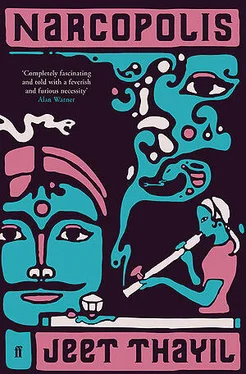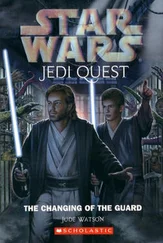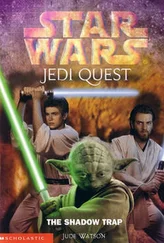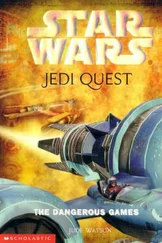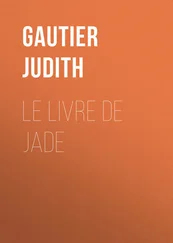His father smoked from the moment he woke to the minute he fell asleep. He smoked a Chinese brand made from Virginia tobacco that he bought by the carton. When there was no money for cigarettes he bought loose black tobacco that he smoked in a pipe. His father wasn’t much of a communist. At the height of the fervour, the villagers dug a tunnel through a nearby mountain, dug it with their bare hands and the most rudimentary of tools. Some army officers and a revolutionary leader visited the site and named it ‘Tunnel of the People’s Triumph’. His father took no part in the construction. He was heard to say that the villagers, his relatives, all of whom carried the surname Lee, would have spent their time more profitably by building a road around the mountain or by using a truck. He voiced this opinion loudly but there was no reprisal from the Party. The village of Lees was known not only for the ideological correctness of its inhabitants but also for his father, who wrote a series of novels about a tramp named Ah Chu. The tramp had a knack for disaster and his inner life was reflected on his face, which was covered in boils. Ah Chu’s life unfolded in real time, for there was a book every year or every other year, and readers waited to discover what foolishness he’d been up to since the last instalment, and how much further his life had unravelled. The reason for the popularity of the series, particularly with the communists, was because Ah Chu was seen as a symbol of Republican China and because there were plenty of jokes. The first of the series, The Childhood of Ah Chu , opened with a joke about Ah Chu’s father, a corrupt government official who carries his cynicism everywhere, on display, like a great open wound. He believes in nothing and trusts no one and has no interests except wine. One afternoon a friend visits and finds Ah Chu’s father calmly cutting off his pigtail. What are you doing? asks the friend. Have you gone mad? I’m cutting my hair because my son has left home, says Ah Chu’s father. The man notices something that surprises him even more than his friend’s mutilated pigtail. Tell me, he says, why are you sober today? I’ve decided to give up drink until my son returns to the bosom of his family, says Ah Chu’s father. Where has your son gone? asks the friend. To buy more wine, says Ah Chu’s father. It was not the best joke going around at the time, but readers loved it, for they loved jokes, even bad ones, and the book went into reprints.
*
Lee was still in school when his mother decided she wanted a degree, though she didn’t know what kind of degree or which subject she would study. She didn’t believe in culture. She didn’t believe in books. She didn’t believe in knowledge that did not benefit society as a whole. She believed that indiscriminate individual reading was detrimental to progress because it filled the populace with yearnings that were impossible to identify, much less satisfy. Societies with the highest literacy rates also had the highest suicide rates, she said. Some kinds of knowledge were not meant to be freely available, she said, because all men and women were not equipped to receive such knowledge in an equal and equally useful way. She did not believe in art for art’s sake; she did not believe in freedom of expression; she did not believe in her husband, whose stature as a novelist she regarded with suspicion mixed with shame. Despite her lifelong aversion to culture she would go to university because she wanted to be a teacher. Teaching was the noblest profession in the world, she said. It was selfless, revolutionary and critical to the nation’s well-being. It concerned itself not with money, which was irredeemably dirty, but with the future of the mind. As she made these stunning proclamations, Lee’s mother watched herself in the mirror. She held her head up and straightened her back. What was she doing? Was she imagining herself as the heroine of a revolutionary movie? Or was she imagining her role at the forefront of the new China? When she turned to face the boy her expression was cold and inhuman, as if she was staring at a pitiless desert landscape, a featureless yellow vista where all crimes were condoned and anything was possible except hope.
‘You are my son,’ she said.
‘Yes.’
‘You are my only son. Do you know why?’
‘No, Mother.’
‘Because I do not want some fat boys and girls running around the house. I do not wish to perpetuate your father’s family name by helping to produce a dynasty. I took a vow to have only one child and I made your father take the vow too. Do you know why?’
‘No, Mother.’
‘To distance ourselves from the reactionary bourgeoisie. To make sure our only child developed intellectually, physically and, most important, morally. To help you become a good labourer with socialist awareness and discipline.’
Her lips curved upwards as if she was smiling but she started to weep. She turned to the mirror and looked at herself. She stretched her big lips and lifted them on one side to show the broken teeth that jutted out of her mouth. The boy realized that she was trying to make herself ugly and that he had never before seen her tears. He became frightened.
‘Don’t worry,’ he said. ‘I’ll be a good labourer.’
‘Look at me,’ said his mother, her cheeks blotched. ‘I should have concentrated my vigour on speeding up our country’s modernization. Instead, I’m a class dissident. I want to go to university.’
*
She woke at an odd hour, having slept in snatches. She was no longer able to sleep uninterruptedly through the night. Anxiety would pull her awake and keep her up, her eyes wide and a pulse thudding in her ears. She woke and lay still, listening to the noises of the night and her husband’s steady breathing in his bed near the window. She heard her son in the next room, talking in his sleep. What was he saying? The words were too muffled to make out. She pinched her fingers and thought about the White Lotus Society, the group of rebels and mystics whose descendants became the heroic patriots of the Society of the Righteous and Harmonious Fists. The Fists won fame for taking up arms against the foreign conspirators who tried to partition China, but for her their significance was much greater. She revered them for the simple fact that they continued the great work of the White Lotus, a secret society led by the peasant who overthrew the Mughal armies, declared himself Emperor and founded a dynasty. The dynasty, like all dynasties, eventually became decadent and corrupt, but not so the White Lotus, which, according to her, was the single pivot on which Chinese history turned; it was the fount from which all greatness ensued. She repeated to herself the alternative names the White Lotus had used to disguise itself in the years in which it was forced to go underground. She said the names very softly, because to say them aloud was to invite catastrophe. White Clouds, she said, and waited. She said, White Fans, and waited. Then, because this was the most dreaded one of all, she mouthed silently the name, White Eyebrows. She sat up and put her feet on the floor and listened. She listened and walked through the house in the dark. It was a bright night and snow was falling. Moonlight dropped straight onto the kitchen floor with a curious sound, a sound it took her a moment to recognize, and then she felt the hair rise on her arms. It was the sound of money. She placed her fingernails against her neck and pressed until she felt the skin break. She closed her eyes and focused her thoughts on the pain, but it wasn’t sharp enough. She found her nail file with the flat steel hook. She put the hook into her mouth, wedged it between her gums and teeth and twisted until she tasted copper. Then she went into the front room where her son slept. He lay on his side with his hands propped under his face. He’d placed his sleeping mat against the front door as if to guard the house against intruders. She tiptoed up to him until she was close enough to hear what he said. It was a prophecy meant only for her ears. He said, ‘Nothing.’
Читать дальше
